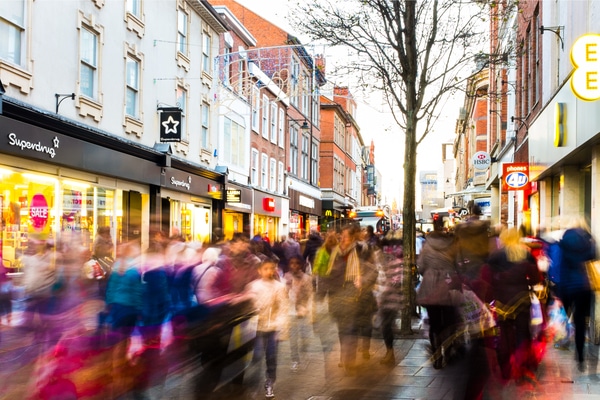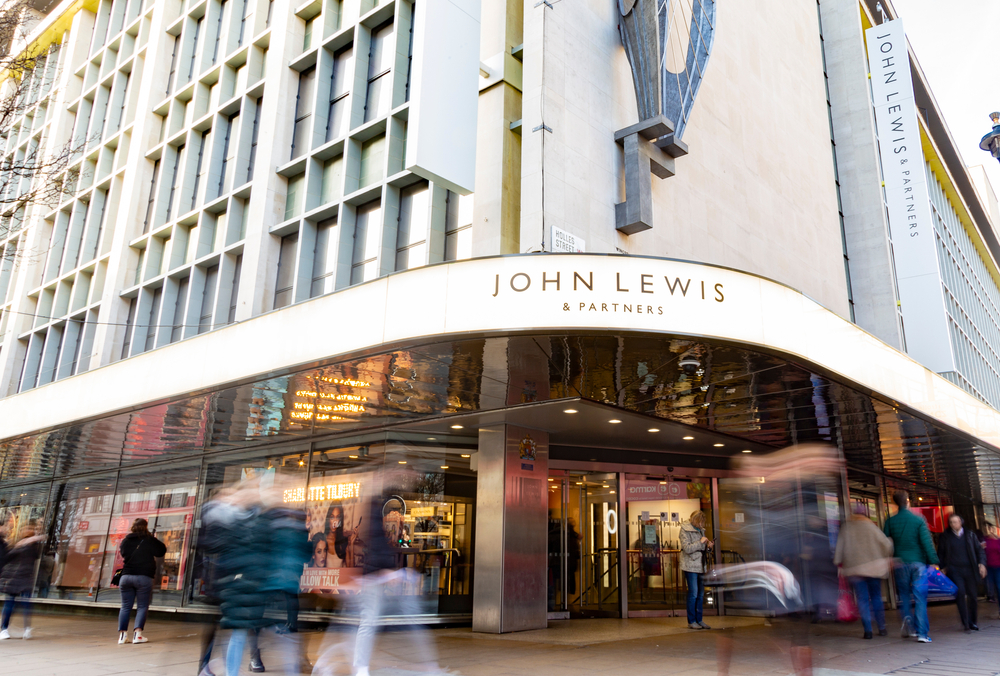Brits are already feeling the impact of Brexit – and it hasn’t even happened yet.
Since the referendum almost three years ago, the value of the sterling has declined to its lowest since 1987, dwindling consumer spending and confidence has had a knock-on effect on footfall and sales figures across the retail industry.
More recently, retailers such as Tesco, Marks & Spencer, Pets at Home and The Entertainer have started stockpiling products, while the Institute of Directors (IoD) reported that 29 per cent of British businesses have either already moved part of their operations outside of the UK or are drawing up plans to do so.
For months now, the British Retail Consortium (BRC) has urged the government to make sure whatever the UK’s trading relationship with the EU is after Brexit, that retailers are not left behind. And with weeks to go until the official divorce on March 29 and still no trade deal in sight, the BRC is calling for urgency on clarity and certainty.
No matter which way you look at it, Brexit anxiety disorder appears to be real. At least it is, according to Dr Philip Corr, professor of psychology and behavioural economics at the University of London.
British retailers have been expanding their presence overseas with the aim of growing their business well before the UK’s high streets started declining – but it’s arguable that the rate of expansion has barely faltered since the referendum.
Expansions in different cities can boost a retailer’s sales but international expansions can do a lot more despite being an expensive investment.
“Retailers are looking to diversify risk against market fluctuations such as the UK high street challenges.”
“Retailers often choose to expand because they believe there is untapped demand for their products which they are not currently servicing,” BRC head of insights Rachel Lund told the Retail Gazette.
“Expansion can increase market share and boost sales, although this may not be realised straightaway, and they can also grow their profile in a particular area or take advantage of economies of scale.
“Despite the obvious advantages of expansion, the risks are that firms find themselves out of pocket if additional revenues do not materialise in the future as a result of either diversification or over-expansion.”
Helene Mills, director at retail consultancy Pragma, added: “Expansion objectives will range from pull factors such as access to new revenue and brand building for global reach, as well as push factors such as domestic market slowdown.”
Last summer, confectionery retailer Hotel Chocolat signed an agreement to transfer the operation of its Danish stores to international retail franchise firm Retail Brands so as to allow it to expand within Denmark as well as open new stores in Norway, Sweden and Finland.
Hotel Chocolat boss Angus Thirlwell told Reuters the retailer’s investment plans would not be affected by Brexit.
AllSaints, Harvey Nichols, Hamleys, Mulberry, The White Company, Hobbs, Matalan, and B&M have also pushed ahead with their respective overseas expansions plans.
“International expansion boosts investor appeal. For a brand, it’s a good way to demonstrate growth potential and latent revenue opportunity, particularly if the home market is in decline or stagnant,” Mills told Retail Gazette.
“This is something we’re starting to see in the UK. Retailers are looking to diversify risk against market fluctuations such as the UK high street challenges, the ‘peak stuff’ trend and the unrelenting uncertainty of Brexit impacting consumer and business confidence.
“Right now we see markets such as Germany, the US, South Korea and China as attractive for UK retailers.
“Brands such as Joules, Fortnum & Mason, Matches and Burberry have all shown it is possible to do well internationally as they leverage the considerable appeal of their Britishness.”
“It will become harder to ship goods to customers in other markets. And potentially more costly.”
On the flipside, Mills believes Brexit could likely stall any immediate expansion plans that retailers have in the pipeline.
Monsoon Accessorize, New Look and Marks & Spencer are among those that have started to exit some of their international markets. Although none have explicitly pointed to Brexit as one of the reason, the three retailers have either posted lacklustre trading updates or are in the middle of a wide-reaching turnaround scheme.
Martin Newman, a retail expert who works with brands such as Speedos, Harrods, Burberry, Ted Baker, said: “It will become harder to ship goods to customers in other markets. And potentially more costly.
“It will also take longer for consumers in the EU purchasing from a UK business to receive their goods.
“It will also potentially lead to more bureaucracy and extend the costs and timelines for UK retailers to enter other markets with a physical presence.”
While David Cole, director at online gift retailer Pen Heaven, echoes the sentiment that expanding presents retailers with the opportunity to access a new marketplace, he also fears Brexit will affect the speed of delivery due to lengthier customs periods. He also believes there may be some uncertainty for consumers over additional customs and duties charges.
“There could also be a general feeling from European customers that buying from the UK will/may be problematic,” Cole told the Retail Gazette.
Meanwhile, retailers like OnBuy.com are determined to expand purely due to customer service reasons.
“We are expanding in order to attract more sellers and a stronger variety of products, which will in turn create a better shopping experience for the customer on OnBuy.com,” founder Cas Paton told Retail Gazette.
“It’s still not clear what the implications of Brexit will be on UK ecommerce but we are confident that we’ll be able to deal with whatever the outcome turns out to be.
“There are understandable concerns for the impact of Brexit on high street retailers as well, so we’re expanding on the sellers we target from purely online sellers to businesses with no online presence.”
Freddie Sheridan, director at international retail agency Sheridan & Co, also believes the reason retailers choose to expand is more than just boosting sales, it’s about building trust with customers.
“Boosting sales of course is an important part of a global expansion strategy, but it’s not all about that. It’s about driving meaningful engagement with consumers and securing their loyalty and trust,” Sheridan said.
“There could also be a general feeling from European customers that buying from the UK will/may be problematic.”
It can also be argued retailers are hastily expanding to other cities or overseas to sustain their presence. But this can have repercussions, as retailers could spread retailers’ capital too thinly and leave them with only have so much to invest. It may also take a while before retailers actually see a return on their investment, and as a result, shareholders need to know if the retailers’ profit might suffer in the short term.
“In today’s uncertain economic climate, many retailers are loath to make significant decisions before the UK government solidifies a Brexit plan,” Econocom UK managing director Chris Labrey told the Retail Gazette.
“As a result, they are playing a waiting game. However, while this might be financially prudent, retailers still need to operate as usual, but also look at how expansion would be beneficial to their business.
“Oliver Bonas is a prime example of this: its announcement of eight new UK stores demonstrates the opportunity in the sector.”
Labrey added: “The expansion shows that reduced confidence in the economy isn’t a reason not to invest, and in some circumstances, could enable competitive advantage where a retailer’s adversaries are feeling hesitant.”
Click here to sign up to Retail Gazette‘s free daily email newsletter


















